Best Food Diets For People With Anal Fissures
By Dr. Shiv Kishor +2 more

Get,

to manage your symptom
Get your,


4 Cr+ families
benefitted

OTP sent to 9988776655



You’ve successfully subscribed to receive
doctor-approved tips on
Whatsapp

Get ready to feel your best.

Hi There,
Download the PharmEasy App now!!


Register to Avail the Offer
Send OTPBy continuing, you agree with our Privacy Policy and Terms and Conditions

Hi There,
Sign up on PharmEasy now!!
Trusted by 4 crore+ families

OTP sent to 9988776655



You have unlocked 25% off on medicines




Code: NU25
By Dr. Shiv Kishor +2 more
Table of Contents
If you notice a small tear in the thin and delicate tissue that lines the anus, it is probably an anal fissure. An anal fissure may occur when you pass hard stools during a bowel movement and put a lot of strain1. They can cause pain and bleed with daily bowel movements.
Fissures are common among people of all ages, but can affect people of any age, especially between 20 to 40 years2. Most anal fissures get better with simple treatments, such as increased fibre intake or sitz baths. Some people with anal fissures may need medication or surgery. If you are experiencing symptoms of anal fissure, consult with a doctor immediately and get it diagnosed properly. This will help you understand the severity of your condition. This article will guide you on the types of food you should eat to deal with fissures more effectively.
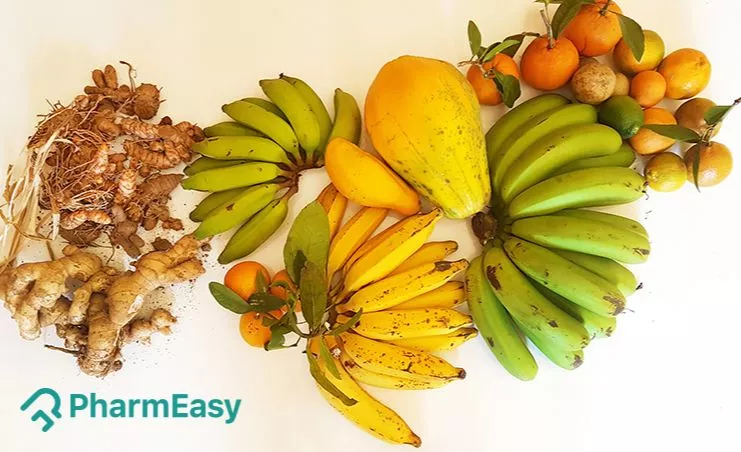
Fissures are a rather painful condition that causes discomfort when you are sitting or even standing. Several food items can help lessen the symptoms of fissure effectively:
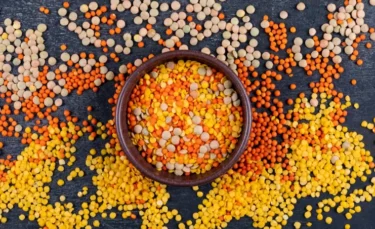
Lentils and legumes like beans and chickpeas are loaded with dietary fibre. According to the Academy of Nutrition and Dietetics, adult males and females should consume at least 38 grams and 25 grams of fibre per day, respectively3. Eating the right amount of fibre helps stools from being too hard and causing constipation. It also keeps stools from being too liquid and causing diarrhoea. A soft, easily passed stool will be less hard on the fissure and keep it from getting even more irritated.
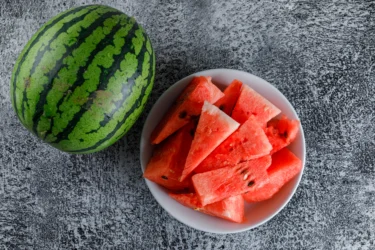
Dehydration or not having enough water in your body can contribute to constipation. Watermelon is very healthy and one of the most hydrating foods you can eat. A cup (150 gram) of watermelon contains over a half-cup (120 ml) of water, in addition to some fibre and several important nutrients, including vitamin A, magnesium and vitamin C.

Curd is promoted in Ayurvedic medicine, which can help by targeting the digestive tract and helping promote normal and pain-free bowel movements4. You may also consume buttermilk.
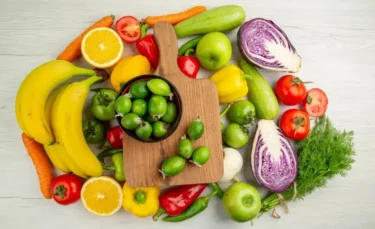
Fruits like lemons and oranges are loaded with vitamin C. Citrus fruits are an important source of antioxidants. They help in lowering the chances of flare-ups and inflammation that comes with anal fissure. Include a variety of fruits and seasonal vegetables in your daily diet.
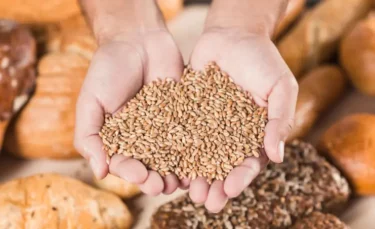
Whole grains are similar to legumes, as they retain their germ, bran and endosperm, all of which are loaded with fibre content. Whole grains are rich in insoluble fibre. Insoluble fibre cannot be digested by the body. They simply add volume to the stool and help us excrete with ease5, with less pain and discomfort that comes with fissures. Brown rice, quinoa, oats and barley are some examples of whole grains.
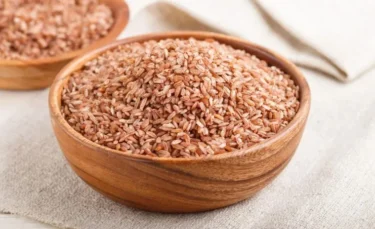
Owing to its unpolished outer layer, brown rice is rich in dietary fibre and has a positive effect on lowering the chances of constipation6. It can effectively target constipation by helping improve bowel movements and decreasing fissure occurrences in future.
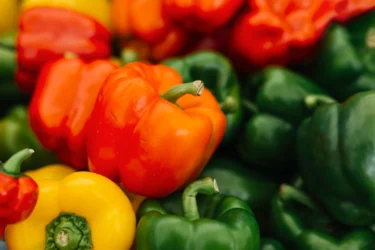
Similar to celery in terms of water and fibre content, bell pepper is a great addition to your diet when you have symptoms of anal fissure. It softens stool and lessens the need to strain while excreting. Raw bell peppers can be sliced and added to salads. It can also be eaten by dipping in guacamole or hummus.
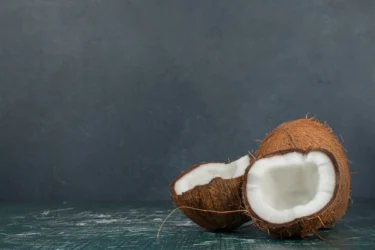
Coconuts are high in fibre, which helps bulk up your stool and helps support bowel regularity7, keeping your digestive system healthy.
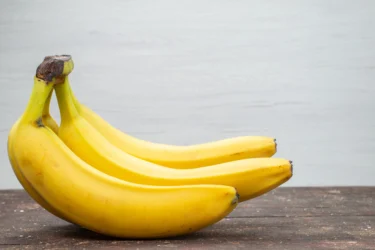
Loaded with pectin and resistant starch, a single banana provides an average of 3 grams of fibre. The combination of pectin and resistant starch helps in clearing stool easily and thus is a great addition to your diet when suffering from anal fissures.
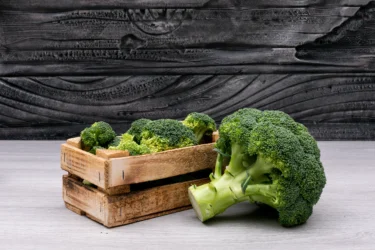
Vegetables like broccoli and carrots, for example, are loaded with fibre content8. Some people prefer broccoli florets, but you can eat the leaves and stems, too. The stalk contains the most fibre, while broccoli leaves are highest in cell-protecting antioxidants, vitamins E and K, and calcium
Also Read: 8 Best Home Remedies For Piles
All food items that trigger problems like indigestion, bloating, constipation or diarrhoea must be avoided. A particular food may suit one person but not the other. Understand your triggers and exclude the food that may cause digestive problems. Here are some foods to avoid-
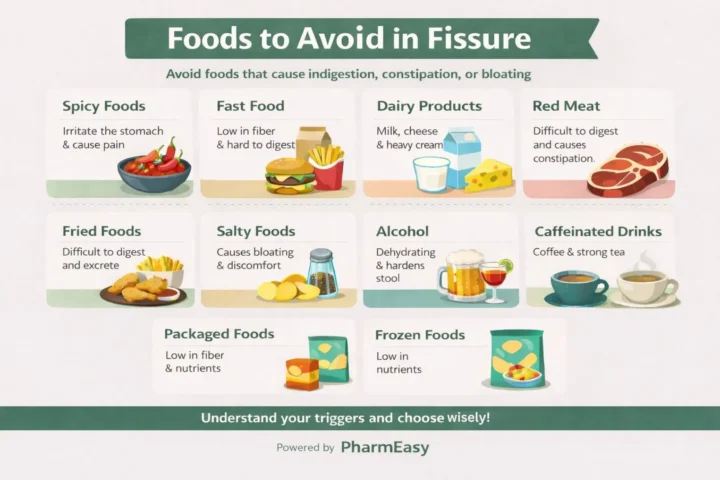
Also Read: Best Foods To Eat And Avoid With Kidney Stones
Khichdi, vegetable dalia, vegetable oats preparations, upama, idli, dhokla and other steamed and grilled preparations of healthy vegetables with low oil and fewer spices are good for the digestive system if you are suffering from anal fissure. Following are some different recipes to try–
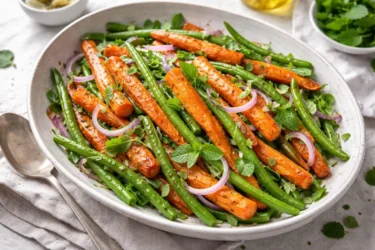
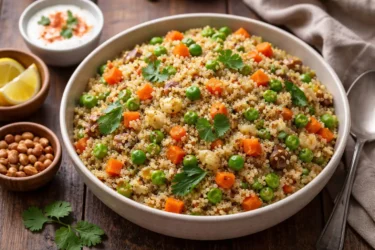
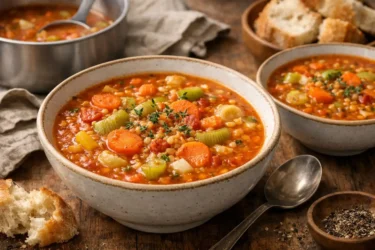
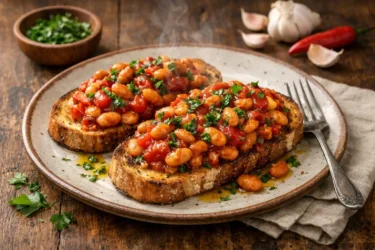
Thus, proper care and good food cooked at home may lower the risk factors like constipation making your recovery from anal fissure easier. When talking about the best food choices, no one’s advice suits all. It is best to follow your doctor’s advice and include the food items that suit you based on your overall health needs. Depending on the severity of your condition, along with doctor-prescribed medications and a good diet, you should be able to recover well.
Also Read: Typhoid – What to Eat and What to Avoid?
Apples are rich in soluble fibre. Apple adds bulk to your stool and helps in passing softer stools, thus, it is a good food item to include in your diet unless advised otherwise by your doctor.
Regular exercise increases blood flow throughout your body, which may aid in lessening anal fissures. Exercise also promotes regular bowel movements, which may help as well. Avoid exercises that may strain the anal region.
Eggs improve the movement of the intestines and help make the stool soft. Eating an egg daily can be a good option if eggs suit you. You can consume eggs in moderation when suffering from anal fissure.
Disclaimer: The information provided here is for educational/awareness purposes only and is not intended to be a substitute for medical treatment by a healthcare professional and should not be relied upon to diagnose or treat any medical condition. The reader should consult a registered medical practitioner to determine the appropriateness of the information and before consuming any medication. PharmEasy does not provide any guarantee or warranty (express or implied) regarding the accuracy, adequacy, completeness, legality, reliability or usefulness of the information; and disclaims any liability arising thereof.
Comments

Leave your comment...
You may also like
Comments